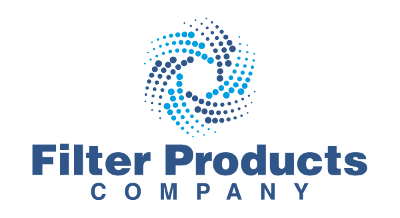The most common topics related to bag filtration are outlined below. If you have additional comments or would like to discuss a specific application, please contact us at your convenience.
Filter vs. Strainer
“Filter” generally refers to a device that removes particles that are below the threshold of human eyesight, which is accepted as roughly 50-micron. “Strainer” generally refers to a device that removes particles that are perceptible with the naked eye (eg: larger than 50-micron). In practice, ‘filter’ and ‘strainer’ can be used interchangeable.
The phrase “filter bag” is remarkable ambiguous because it refers to several different types of products for an array of different applications. This section provides examples of several applications. When you contact Filter Products Company, submitting pictures of the equipment and applications through our webform is very helpful in the initial stages of communication.
Depth vs. Surface Filtration
Particulate filtration methods can generally be classified as depth filtration or surface filtration.
- With depth filtration the particulate becomes entangled within the cross section of the filter media. The tortuous path through the media causes the particles to lose kinetic energy and stop while the rest of the fluid continues through.
- Surface filtration, as the name implies, stops the particulate on the surface of the filter media, rather than within the cross section.
This section expands on the benefits and drawbacks of these two broad categories of media.
Standard vs. Custom Bags
A standard or “trade size” filter bag is cheaper and has shorter lead times than a custom designed solution. When designing a new filtration process, it is worth considering industry standard filters and filter housings.
This section provides a comprehensive overview of the various standard- or trade-sized filter bags. The most common configurations of these products can be ordered on our trade-size filter bag page.
For applications where a standard product does not meet integration or performance requirements, Filter Products Company can design and manufacture made-to-order custom products.
Mesh vs. Micron
Few topics in the filtration industry generate as much confusion as mesh versus micron. Below is a brief overview.
A micron is a metric measurement and is defined as one-one thousandth of a millimeter (1/1000mm). Therefore, the smaller the micron rating, the smaller the particle that the filter is capable of arresting.
Mesh is a US and British customary unit. Mesh size describes the number of openings per inch. The smaller the mesh number, the larger the openings in the filter or screen. For example, a #4 mesh would have 4 openings per linear inch. If the mesh is woven uniformly in the length and width directions, this would result in 16 openings per square inch. A larger mesh number equates to filtering smaller materials.
A basic conversion chart is provided to determine what filter medias may be appropriate for your application.
Material Selection
Filter Product recognizes that picking the right material for your straining or filtration application can be difficult. This section describes many of the considerations that should be made when picking a filtration textile.
To assist with this process, we offer sample sets of small-format filter bags in a variety of fabrics styles and micron ratings. Filter Products Company also has qualitative test capabilities in-house.
Contact us to discuss your application and we will work with you to determine if our test capabilities are applicable to your application.
Fabric Failure Modes
When a strainer bag fails, it is imperative that the root cause of the problem is sought out to ensure permanent change. To do so, we need to locate the exact spot the failure occurred. We need to determine if we are dealing with failure in the fabric or failure at the seam.
Centrifuge Bags
Filter Products Company has extensive experience in creating strainer bags for botanical extraction applications that utilize a centrifuge. The end product of these processes is meant to be consumed so we ensure the materials used meet FDA guidelines under 21 CFR 170.39 for direct contact with food, beverage, and potable water applications.
Filter Products Company has extensive experience in creating strainer bags for unique applications. Examples of these products are:
- Commercial scale coffee and tea brewing equipment
- Sink basin liners for straining food waste from water in a chain of commercial kitchens
- Botanical centrifugation extraction applications for maximizing process efficiency.
- Many human consumables applications that require materials that meet FDA guidelines under 21 CFR 170.39 for direct contact with food, beverage, and potable water applications.
Request a Quote for Custom Filter Bags
Contact Filter Products Company for filter bags customized to your precise needs and specifications. We will respond within 24 hours.
